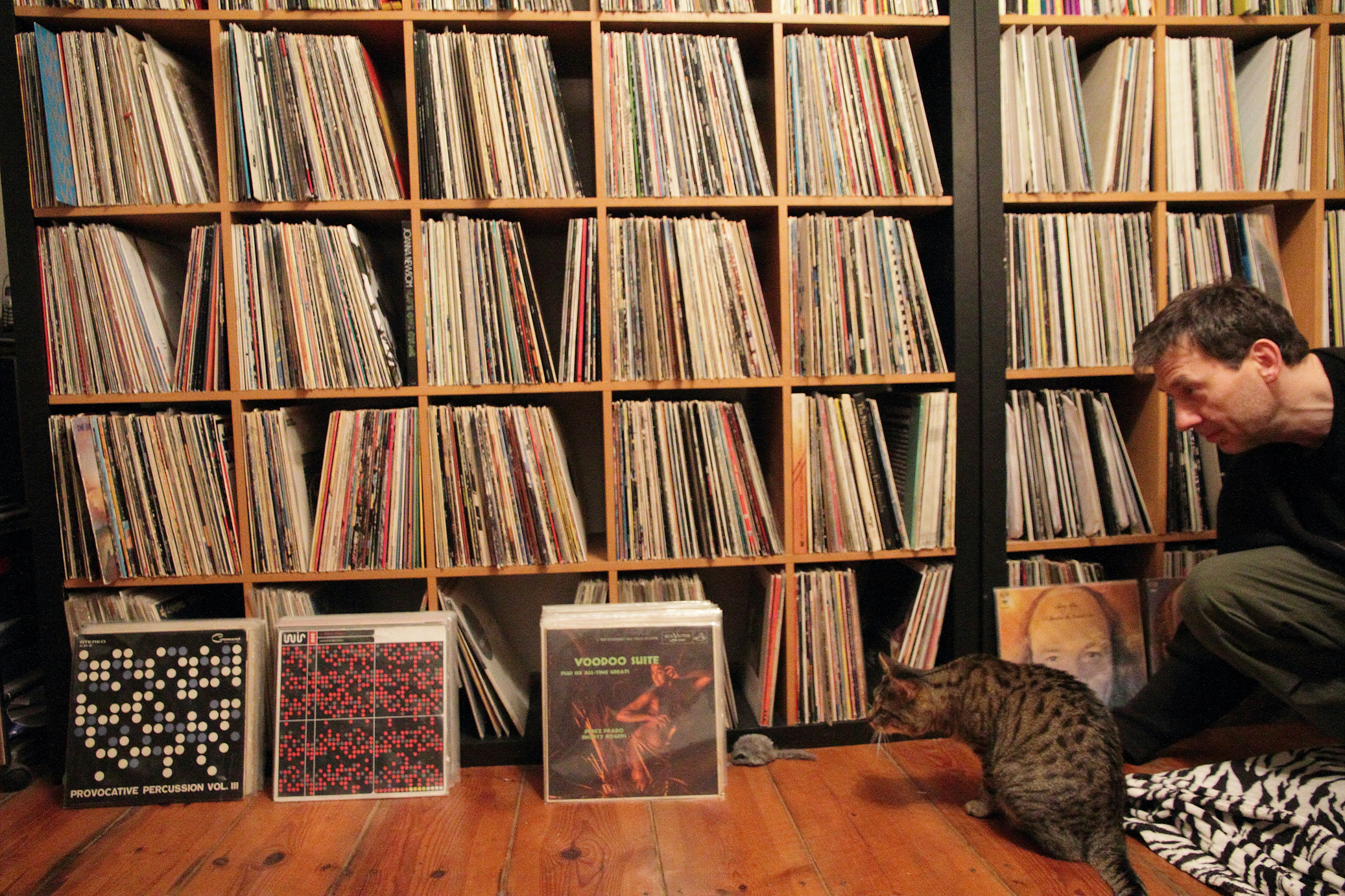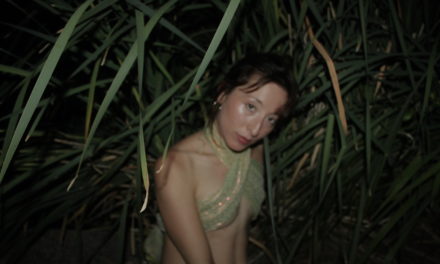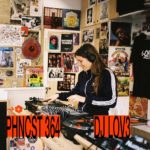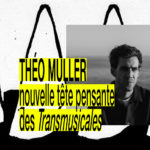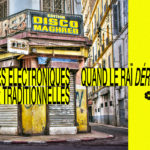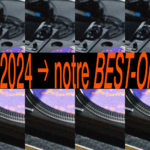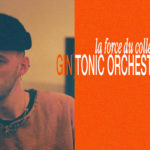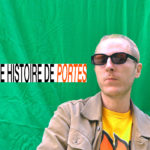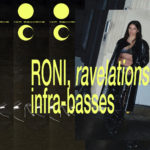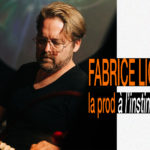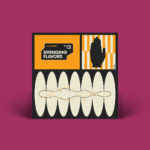James Dean Brown is certainly one of the most unrecognized genius from the Perlon crew. Present since the beginning of the label, he never stopped working for the German underground. Initially into his project Hypnobeat and then in his famous group Narcotic Syntax alongside Yapacc, Achim Treu and Robert Conroy he is also known for his panoramic dj set providing an extra wide spectrum of moods and musical universes. Maybe JDB looks a little bit older than the average dj but behind the appearance there is a genuine crowd killer and a true artistic sensitivity. Caracterised by his open mindedness and a career out of the ordinary dj’s marked path, last spring we discovered Mr Brown for the first time during his highly acclaimed set for the Get Perlonized day at Concrete. Curious, we took the opportunity to ask him some questions before his performance at the festival Serendip.
– Hello James, can you introduce yourself?
James Dean Brown: Hello, I am James Dean Brown. Together with Yapacc, I produce music as Narcotic Syntax with releases on Perlon. We perform live every now and then, but I am more active as a DJ.
– Where did you start music?
JDB: I started producing music in Frankfurt in the 80es as Hypnobeat. Focused on the sound of electronic rhythms, we were constantly trying out different equipment. We had up to 6 synchronized rhythm machines on stage in order to get the most powerful performance while stripping the music down to the essence of the beat. It was the time when I became friends with Tobias Freund, Martin Schopf (aka Dandy Jack) and Uwe Schmidt (aka Atom™).
This was the beginning of my public activities, but my music interest is wide and dates back to when I was a kid. I listen to a wide range of music styles: from 50’s Exotica to psychedelic music of all genres and all decades, Prog Rock, Fusion, New Wave, Surf, Soul, Funk, Jazz, Latin, Dub, drone, noise, electronics, club music. It is important to get a continuous inspiration from many different sources to keep the flow of your own productions and DJ sets versatile.
– You said that you’re part of the Perlon family. Zip and Markus Nikolai began their careers in Electronic Body Music. Were you involved in this music?
JDB: I listened to a few of these bands but was not so deeply involved. Thomas (Zip) and Markus were in this EBM band Bigod 20 – On The Run (1992). I wrote some promo texts and conceived the title of their last album. I got introduced to them via Zip’s brother who was studying in the same school for Art & Design, in film class like me: Jörg Franzmann is VJing for the “Get Perlonized” parties, and we collaborated on the shooting of the Narcoboys’ video clip “Megadieselizer”. We were hanging around in a party and performance space for exhibitions and club events, which had been founded, by a group of artist friends.
At one point, Zip and Markus were fed up with EBM, they wanted to do something new so they founded the project Pile; the concept included live performances featuring elaborated stage visuals by Chris Rehberger who is a top graphic designer and conceived the graphic CI for Perlon later on. After that it was time to do something completely new, and Perlon was born.
– At the same time you founded Narcotic Syntax.
It was earlier, in 1995 Hypnobeat automatically transformed into Narcotic Syntax. I am here in Paris right now to present my first Hypnobeat live performance after 20 years. Actually it’s the same set up as Narcotic Syntax, but I will be performing solo on stage, the analog synths and sequencers from Yapacc are missing. I will return to the rhythm core tonight. The transformation was a logical development. Like Hypnobeat, the basic Narcotic Syntax line-up consists of two members. I don’t have a studio, so I am sort of dependent on a production partner with a similar vision like me. I produced the first Narcotic Syntax tracks with Zip and another one with Markus Nikolai, and in 2003 I met Yapacc. From this time, we are the steady production team, which works great.
We invited another musician to join the band, guitarist Achim Treu, and we collaborate with a chanteuse from New York, Robert Conroy, who has a fantastic voice, like Scott Walker or a young David Bowie. We produced some stuff as a trio and a quartet, and also when we have session recordings with guest musicians, it is still Narcotic Syntax – the name remains even if we decide to transform to a Death Metal band.
It’s a concept without a strict future plan; we just find out where to go out of intuition. Honestly I don’t bother that much about hypes, it seems we need breaks to get inspired to come up with something that is exciting enough to get released. We are satisfied with our work only when we work meticulously and go deeply into details. In the end, we know exactly when the last note has been placed on the right position…
– Do you still work in advertising?
I pay my rent thanks to my jobs as a copywriter and conceptionist in advertising, but this industry is full of stressful people. So I think it’s a good idea to switch more to producing music and DJing again. It’s good to have a balance.
– Did the writing influence your approach to music?
Actually, the term “Narcotic Syntax” can be applied to both writing texts and programming music. The syntax in music determines its flow. After all, writing, making music and cooking follow similar rules: you have to combine a certain amount of ingredients in a certain relation to each other to receive a great composition. It works with words, with notes, and with vegetables.
– How did you include Yapacc in Narcotic Syntax in 2003?
We knew each other from events in Frankfurt. At this time he was involved in some underground Techno scene while I seemed to have a certain approach to the club scene he was attracted to. He just asked whether I’d like to work with him, and I said ok. From the beginning it was a smooth collaboration. The first track we did was Electric Liquid which is A1 of our “Calculated Extravagant Licentiousness EP” (Perl 39). Yapacc is a great musician, he plays guitar, bass, keyboards, owns a nice selection of synthesizers and has fantastic computer skills.
– Could you tell us more about “the emotional maximum”
You feel “the emotional maximum” when music is made with passion, Then it will be able to arouse the full range of emotions to capture you and make you deeply getting into it. You have it in Soul music, and in Funk with the syncopation of the groove; you have it in the dynamics of Jazz and orchestral works. You also find it often with vocals. I hope listeners will find it in our songs. We experienced most emotional moments when we were working with our singer because his performance is absolutely passionate. Ladies’ hearts melt when they listen to his voice. I think, it is the duty of producers and DJs to bring “the emotional maximum” on the floor to avoid the trap of pure functionality – and the trap of boredom (laughs).
I feel strongly moved by a lot of music. For example, years ago I discovered a band from Seattle called Mono in VCF that left me completely stunned. Their songs Cinch Ring and Spider Rotation are able to tear my heart out. Also the vocals and the Rhodes solo on Leaving Town by Astrid Engberg. Or, an epic like Nadja – Stays Demons by Drone duo Nadja feels like experiencing a divine service, approacing a vortex of light, repenting your sins…
– Is the aspect of family important for you being with the Perlon label? What value is added for you?
In every community the family spirit is important. It means that you feel comfortable being surrounded by people who think the same way, or share similar visions like you. Even if they strike different paths, but in the end, they all gather for one big reason: the mission of trying something new. Maybe even it will result in something revolutionary.
Zip invited me almost from the beginning to play at the the “Get Perlonized” parties at Berlin’s Panorama Bar, which was in 2001. If you go there you can feel a special spirit. People are always nice and don’t display weird attitudes. They don’t expect something beforehand, they just know what they’ll get and go with the flow. The crowd wants to be surprised, so the atmosphere is like a thunderstorm: full of tension, in a musical sense. A lot of people from all over the world visit these parties because they appreciate Perlon’s unique approach to sound. It is exciting to be part of such an open-minded family.
– If we look to the Perlon family they’re playing a wide range of music, but there are a lot of fans and DJs who play only Perlon stuff. This is a really restrictive behaviour. Do you think there is sometimes a misunderstanding between the crowd and the producer?
Obviously, like always, it was a journalist who filed the Perlon sound under “Minimal” to create himself a safety zone. But even Zip doesn’t accept the term; he never had a definition of sound in mind. He was just starting to realize his very own vision of music beyond any limit. In the end, every artist on Perlon has been categorized as “Minimal”. But the releases on Perlon are so varied; organic, full of ideas, sounds, rhythms and events it doesn’t make sense to call it “Minimal”. For instance, Markus Nikolai has a strong Pop approach.
If you listen to Robert Hood or Richie Hawtin in their beginnings, you can say this is a truly functional approach to minimalism. They had a strict concept of reduction. However, there will always be a problem as soon as you start categorizing music. If you define too many boundaries you will get dogmatic about the subject sooner or later, and music will not be in the focus any more.
Most producers who send demos to labels imitate what they think is the certain label sound, or worse: what they think is the currently hyped sound. When I was doing the A&R work for the Cologne-based Treibstoff / WIR network, I received ca. 95% demo waste. This is really true. The only productions that attracted our attention were those with a very personal vision and sound, and a certain kind of daring attitude. Also Zip is interested in something unique, that’s why he does not accept demos. You can judge it from his DJ sets which display a special sense of humour.
– Over the year do you think that your approach to music changed?
Personally, I like to be surprised, that’s why my music interests change constantly. I want to soak up as many music impressions as possible, the more extraordinary the better. There is so much sound to explore, I will never stop doing so. Actually, club music is so limited I wonder sometimes how that four-to-the floor sound could survive for 24 years now… (laughs) Which is a remarkably long time for a cultural movement.
There have been so many influences and so many artists that left an impact, I will probably miss some if I’d list them. To name a few: A Certain Ratio, André Breton, Armageddon, Blaise Cendrars, B.T. Express, Cathedral, Chrome, Claude Debussy,Gentle Giant, George Russell, Gong, John Martyn, Kevin Ayers, Led Zeppelin, Les Baxter, Liaisons Dangereuses, Low Res, Mahavishnu Orchestra, Mandingo, Metal Urbain, Monitor, MX-80 Sound, Pre Fix, Raymond Queneau, Roy Harper, Scott Walker, Severed Heads, Shock Headed Peters, Sofia Coppola, Snakefinger, Steve Coleman and Five Elements, Suicide, The Undisputed Truth, This Heat, Throbbing Gristle, Todd Edwards, Tuxedomoon, Weather Report, Wire, Yellow Magic Orchestra.
Most of my music explorations find their way into our Narcotic Syntax productions. We work conceptual and like to change the Narconcept with almost every phase of production. Basically, Narcotic Syntax tracks consist of several parts, some of them different in groove and atmosphere from each other. The greatest challenge is to put these parts together in a smart way to receive a logical flow that tells a story, like in a mix. It’s all about finding a perfect balance to have a transition from one soundscape to another, even if it appears to be absurd in the beginning.
On our Perlon releases we mostly included spoken lyrics in our melody-driven tracks. Then we produced a double 12″EP for WIR, which is the sister label of Treibstoff, and I wanted to get rid of this “baroque” format in favour of pure rhythmic energy. So we chose to concentrate on the complexity of rhythm programming, interweaving it with lots of samples from favourite records. By “complex” I mean that no measure is equal to the other here. Even if we changed one Hi-hat pattern we changed its programming continuously over many measures. So it took a long time to produce these four tracks, but in the end we were able to present a strong statement with “Provocative Percussion”.
Then, in 2007 we started producing a song “Last Outburst of Beauty” while we felt attracted to 70es Prog bands like Van Der Graaf Generator and the psychedelic Blues by Steamhammer. After we had focused on tricky rhythms, we decided to put layers of melodies over a straight rhythm track here, including guitars and bass guitar. Planning a vocal radio edit, we continue our collaboration with singer Robert Conroy with whom we had the opportunity to do an amazing live performance in Berlin last year.
Currently, still in a 70es mood, Yapacc and I continue producing, playing sessions and live sets as a duo. We have a “horde” of analog machines on stage, including synths and sequencers from MFB, the company Yapacc is working for, as well as two Roland TR-808 rhythm machines. Every live set is improvised, we just start every session from zero, there is no pre-programming. The release of a 7″ single and a double 12″EP is planned.
– How long have you been living in Berlin?
3 years now. I visited Berlin regularly since the 80’s to have some adventure vacation (laughs). I always felt that Berlin is exceptional but I never had a vision of what to do there for a living. In Frankfurt it was easier because of the community I grew up with. Then I moved to Cologne for job reasons and lived there for 3 years until I received job offers from Berlin. This was the first time to experience the city for several weeks in a row, walking around for hours, and I knew exactly I need to be there. It makes sense because my mother is from Berlin. She moved away a long time ago and always wanted to return but she never made it. Now I finished her mission, and I feel Berlin is absolutely my hometown.
– Do you enjoy the way that Berlin is transforming into a huge attraction for clubbers?
Frankly speaking, not really because Berlin has so much more to offer than just club life. I hardly go out to clubs anyway. Party business has become a routine which I find questionable because a routine has no potential to develop. Maybe the drug culture has to change again to allow access to another kinds of sound (laughs). The way I feel it, a lot of party people in Berlin are not really interested in the music, but more into cultivating their social routine which is based on medication. This changes the attitude towards music, also without any potential to develop.
Often you have parties with a bunch of DJs playing only 1½ or 2 hours each while they keep the same, spiritless sound level – which results in a mood flatline. I think DJs should establish their personal storytelling instead of keeping the crowd excited. It is important to tell a story which needs time to unfold and alter in order to keep the people at it. After two hours DJing it begins to become interesting because you enjoy yourself while there are so many options to decide from in which directions you go.
In the 80’s, when the wall was still up some hoods of (West) Berlin appeared pretty depressing, but there were a lot of underground activities, often hidden in third backyards in some warehouses or basements. This pioneer approach continued to exist throughout the years and even became more prominent when the wall came down – which offered new playgrounds to get occupied. In these times, going out had much more of an expedition feel than party service which you find today. I think the party situation one should expect is: make it appear more dangerous…
We just saw you play last spring in Paris. We didn’t see you so much in Paris.
I played only at Batofar years ago though I must have visited Paris around 15, 16 times till now. I love the city and sometimes wish I was raised there. Happy to be here now for the 3rd time in 2012.
DJing different kind of styles for more than 20 years, I played many exciting events, clubs and lounges in Europe, Japan, Canada, South America. From 1997-2000 I enjoyed a summer residency in Santiago de Chile for a few weeks each year, together with Ricardo Villalobos, Dandy Jack, Markus Nikolai, Tobias Freund and other friends. That’s where I was introduced to Jorge González, Argenis Brito and Luciano who just started his DJ career. You can imagine the party potential…
After DJing in clubs for a while, I felt at one point it was too much. Or in fact, not enough. I was missing a bit the true “musical” reference in club music. I mean, if you take Chicago’s Deep House, you hear that the sound is inspired from 70’s Soul and Funk. Which is the music that influenced me heavily when I was living in Frankfurt: through AFM radio and clubs for black music you were surrounded and captured by soulful vibes. But these references got more and more lost with every new producer generation until club music displayed mainly a static reference to itself.
Since 2001 I play the “Get Perlonized” parties at Panorama Bar with a rotating roster of Perlon artists. In April this year, Sammy (Dee) and Zip invited me to join them for “Get Perlonized @ Concrete”, and I was really happy to experience such an amazing atmosphere there. You have the perfect situation on the boat because the crowd is curious, and in a fantastic mood from the first second. I was deeply getting into it because the feedback of the audience was overwhelming. Isis Salvaterra and Claus Voigtmann from Toi.Toi.Musik were there and contacted me shortly after to play one of their parties in London where I presented another 5 hours set
Now I am in the roster of Toi Toi Musik Bookings. So my first ‘Concrete’ party was the perfect DJ situation with the right people around, which aroused my interest in entering the club scene again. With all these steady old and new music impressions and my perilous listening experience (laughs), I found this fresh approach now, and I really enjoy it. I will be DJing Moscow, Osaka, Tokyo, Tours/France, Frankfurt in November/December. Fabric London, Istanbul and Santiago de Chile are on my schedule for spring 2013. And I definitely want to play in Paris more often.
We heard one time that you played for a billionaires gala. Could you tell us the story please?
Ah well, that was in 2001. A friend, project manager in an event agency called me: “Would you like to play for a billionaires gala?”. First I thought this was a joke but she was serious. The event, a sailing regatta took place in Porto Cervo on the island of Sardinia. In the evening they served a dinner in the garden of a fantastic hotel: ‘Cala di Volpe’ that even has a small yacht harbour. They had fragranced the garden with subtle scents. Alternating with a live combo, I played Lounge and Jazz stuff by the pool, even some electronica by Haruomi Hosono, and in between Brazilian jungle sounds from Pantanal, closing with some smooth Deep House. I think, hardly anybody cared.
Apart from the club, I love to play a seductive blend of Exotica, Big Band Blues Noir, Loungecore, Mambo and Crime Jazz from the golden age of coolness in lounges like ‘Solar’ and bar Tausend in Berlin. Whereas in my local bar and residency I use to present 6-7 hours of wildstyle every few weeks, ranging from: 7 decades of psychedelic music (“From Après-midi d’un Faune to Aqua Nebula Oscillator”) to “Dope Exotica”, “JDB plays expensive records”, or 70es Soul and Funk. Once I had the idea of featuring only 7″ singles roughly from the adventurous years 1978-82, and after checking the recording I realized that I had played 96 records. You are welcome to enjoy this set entitled “Lombardo Jukebox” on my download page.
Can you give us the last word of this interview?
Always remember : never repeat.
Thanks to James Dean Brown for his time, his kindness and his sens of detail.
In order to know more:
Thanks to Peter, Mouloud & Pete for their time!

